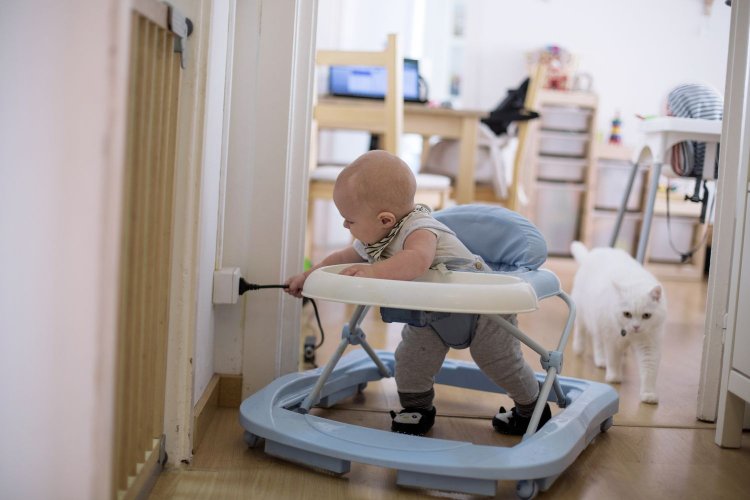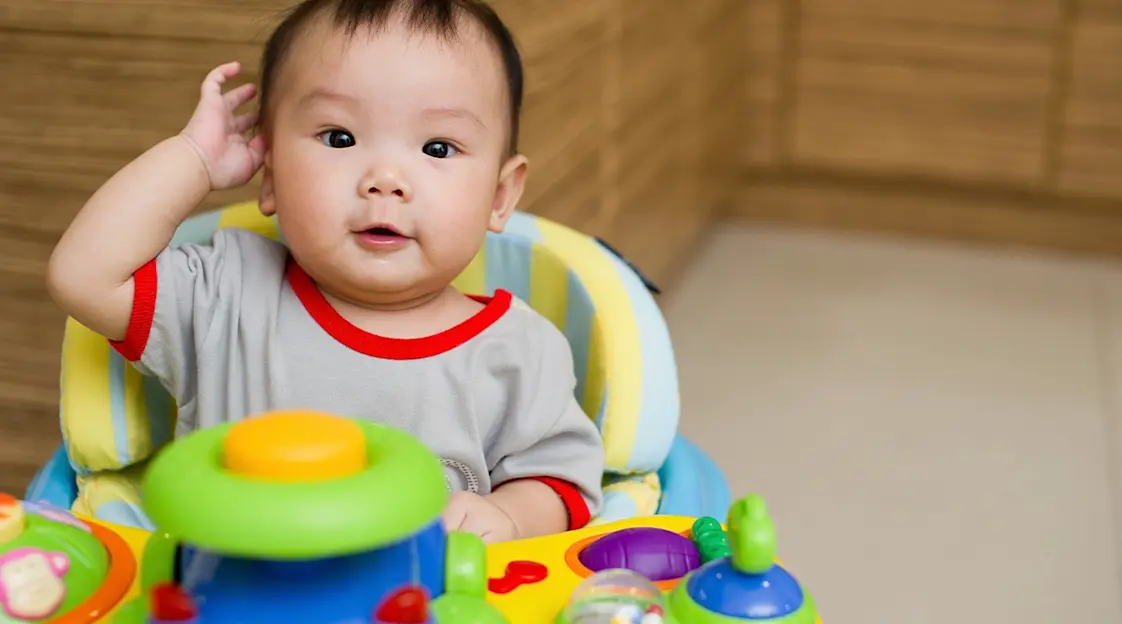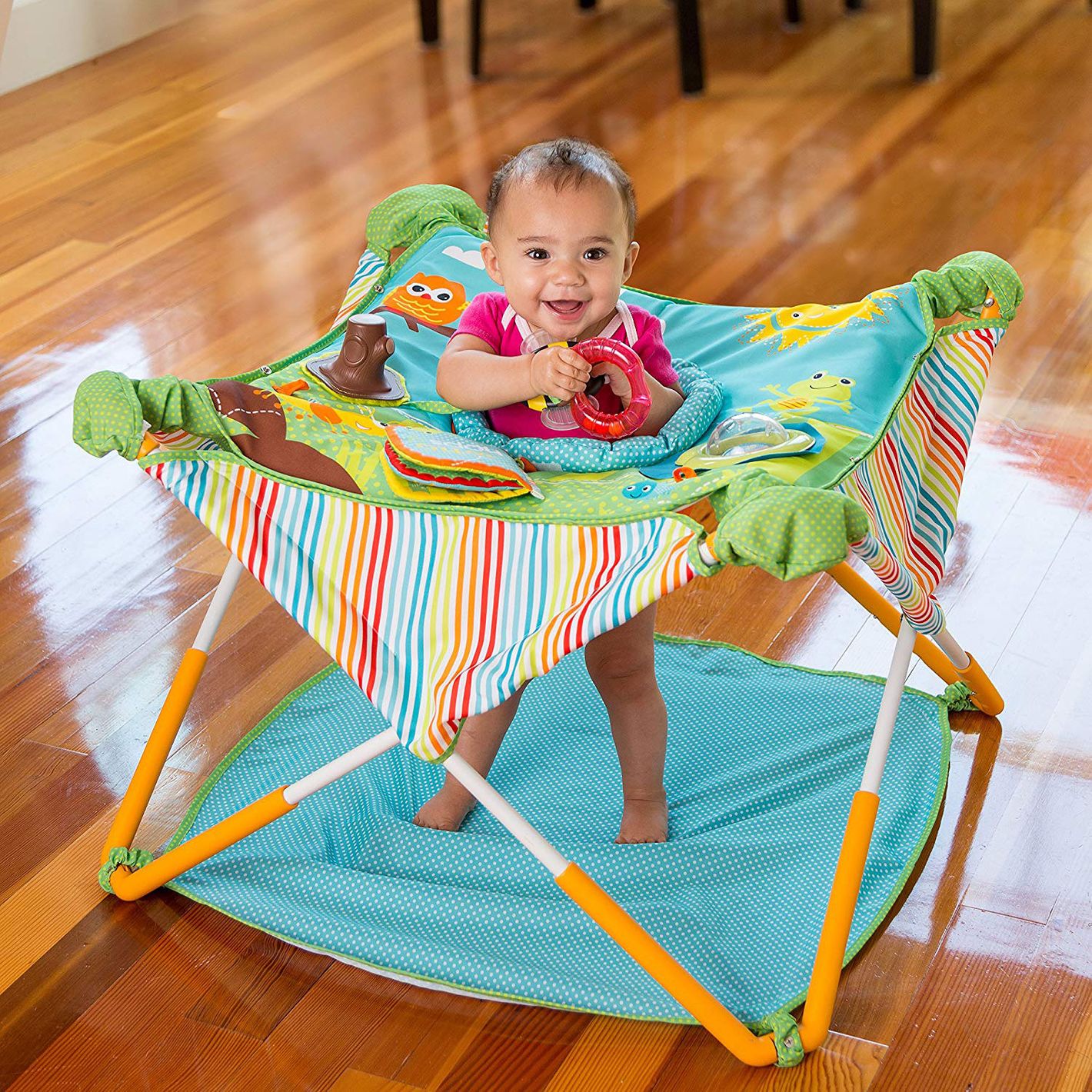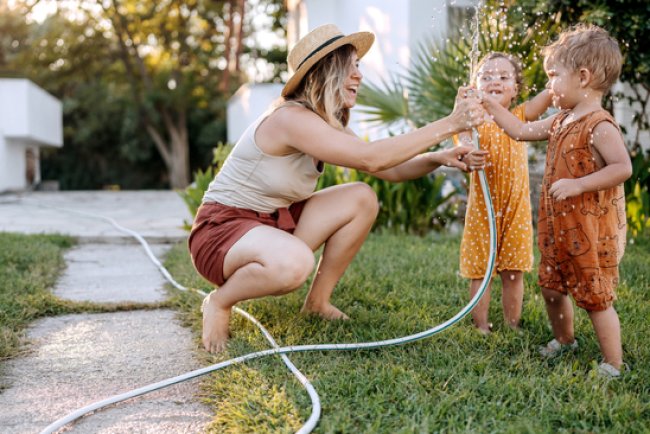Parents, Here’s Why Baby Walkers Are More Harmful Than Helpful
In Canada, baby walkers are banned outright. And south of the border, the American Academy of Pediatrics (AAP) has been calling for the same restriction in the U.S. for years. The reason is simple, and sobering: baby walkers aren’t safe, not even a little.

The Hidden Dangers of Baby Walkers
On the surface, a walker seems like a genius invention: your baby gets to be upright, mobile, and entertained while you get a brief moment to breathe. But the reality is far more dangerous.
A Pediatrics journal study revealed that between 1990 and 2014, more than 230,000 children under 15 months were rushed to U.S. emergency departments with walker-related injuries. Most of those cases involved babies tumbling down stairs often hitting their heads or necks. Some of those falls led to catastrophic injuries.
But stairs aren’t the only lurking hazard. Babies in walkers can:
Grab hot drinks or sharp objects that would normally be out of reach.
Pull heavy items down onto themselves.
Tip over or fall out of the walker itself.
Even roll straight into pools or spas, with tragic consequences.
In short, walkers turn your curious baby into a tiny, fast-moving wrecking ball.
Aren’t Walkers Supposed to Help Babies Walk?

Here’s the great irony: despite the name, walkers don’t help babies learn to walk faster. In fact, they can delay walking.
Walking isn’t just about moving legs forward and back. It’s about balance, strength, and the slow practice of pulling up on stable surfaces, wobbling, falling, and trying again. A walker cheats your child of that messy, necessary process. Instead of teaching independence, it gives the illusion of it like skipping to the end of a book and missing the whole story.
Why Parents Still Buy Them
So why do parents still reach for walkers? Two reasons:
Babies love them. Around six months old, little ones want nothing more than to be upright and in the thick of family life. A walker delivers that instantly.
Parents need a break. Walkers can feel like a magic fix, buying a caregiver ten minutes to sip a coffee or fold laundry.
But here’s the catch: walkers often lull parents into a false sense of security. Instead of being within arm’s reach which is exactly where babies need us we step back. That’s when accidents happen.
Safer Alternatives to Baby Walkers

If your baby craves being upright, consider safer substitutes:
Stationary activity centers or standers that allow babies to bounce, swivel, and explore without wheels.
Floor time with sturdy furniture nearby for pulling up, cruising, and practicing balance.
Yes, these options mean babies move slower. Yes, they require more supervision. But they also let babies learn mobility the way nature intended: clumsy, determined, and at their own pace.
The Bottom Line
Baby walkers aren’t harmless toys. They’re outdated, risky devices that do more harm than good. While they may bring squeals of joy in the short term, the long-term risks from serious injuries to delayed walking simply aren’t worth it.
Your baby doesn’t need wheels to grow. They just need you close enough to catch them when they fall, cheer them when they stand, and walk beside them when they finally take those first wobbly steps.
What's Your Reaction?




















